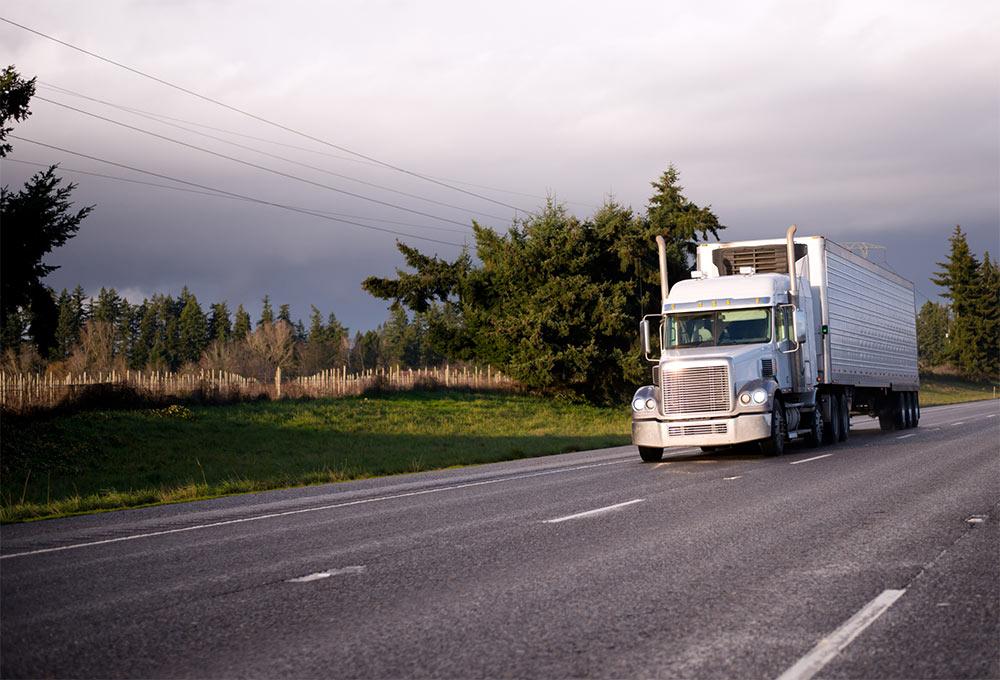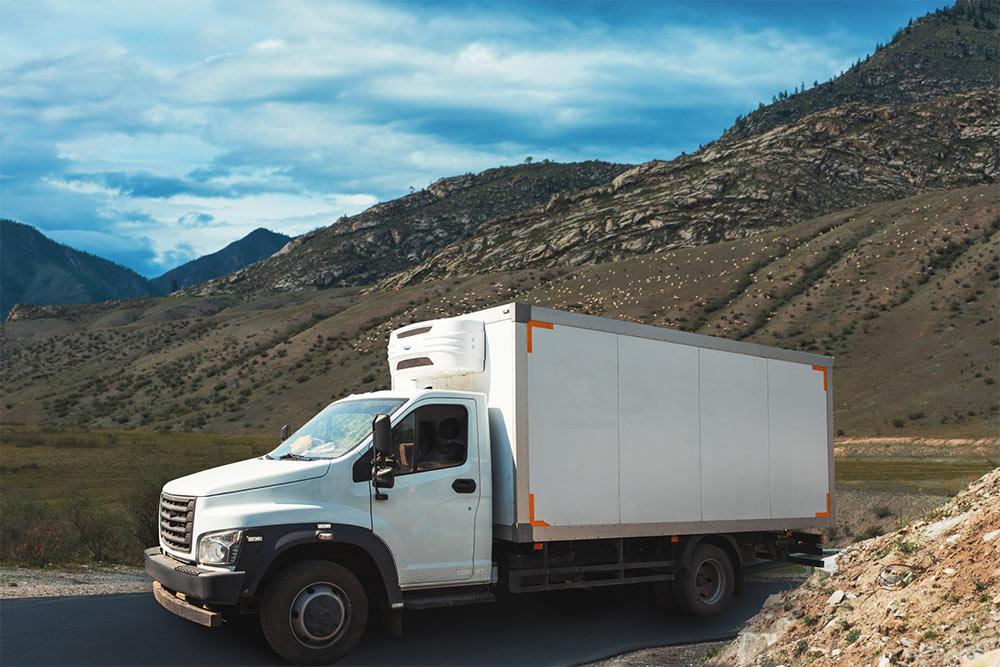How to Choose the Right Commercial Truck for Your Business
April 16th, 2024
By Arrow Truck Marketing

Are you in the business of moving things around? Whether you’re in the transportation industry or you’re in any other business that needs to get goods from point A to point B, selecting the appropriate commercial truck can seriously impact the efficiency and success of your operations. But which truck should you buy? Is the choice just between new vs used trucks, or do you need to consider other factors? Let’s take a closer look at the ins and outs of choosing the perfect commercial truck for your business needs.
Know Your Needs
Before diving into the sea of commercial options, it’s crucial to conduct a thorough assessment of your business requirements. Consider the following factors:
1. Purpose
Identify the primary purpose of the truck. Is it for transporting goods over long distances, local deliveries, hauling heavy equipment, or specialized tasks such as refrigerated transport?
2. Cargo Size and Type
Determine the size and type of cargo you’ll be transporting. Whether it’s perishable goods, construction materials, or oversized equipment, matching the truck’s specifications to your cargo needs is vital.
3. Terrain and Environment
Consider the terrain and environment in which the truck will operate. Will it primarily navigate through urban streets, rugged terrains, or highways? Understanding the operational environment can help narrow down the suitable truck types.
Know Your Options
Commercial trucks come in various shapes and sizes, each designed to cater to specific transportation needs. Here are some common types:
Box Trucks: Ideal for local deliveries and transporting smaller loads, box trucks offer a covered cargo area, protecting goods from weather conditions and theft.
Flatbed Trucks: Suited for transporting large, bulky items such as construction materials, machinery, and vehicles, flatbed trucks provide an open, flat surface for easy loading and unloading.
Refrigerated Trucks: Also called reefers, these trucks are essential for businesses dealing with perishable goods. Refrigerated trucks maintain temperature-controlled environments, ensuring the freshness and quality of the transported items.
Dump Trucks: Primarily used in construction and landscaping industries, dump trucks feature hydraulic mechanisms for effortless dumping of materials such as gravel, sand, and debris.
Semi-trailer Truck (or tractor-trailer): Used for long-haul transportation of goods, such as freight, food, and manufacturing materials. Often used for intercity and interstate transportation.
In addition to the categories listed above, commercial trucks are also divided into classes based on their gross vehicle weight rating (GVWR), which includes the weight of the vehicle itself, plus its maximum payload capacity.
Class 1 trucks have the lowest GVWR, typically under 6,000 pounds, and are often light-duty vehicles used for tasks like small deliveries or utility work.
Class 2 trucks range from 6,001 to 10,000 pounds GVWR and include vehicles like delivery vans and larger pickup trucks.
Class 3 trucks, with GVWRs between 10,001 and 14,000 pounds, are commonly used for heavier deliveries and towing tasks.
Class 4 trucks have a GVWR between 14,001 and 16,000 pounds and include vehicles like small box trucks and larger utility trucks.
Class 5 trucks span 16,001 to 19,500 pounds GVWR and include medium-duty vehicles like larger box trucks and some tow trucks.
Classes 6 through 8 cover heavy-duty trucks, including semis, with GVWRs ranging from 19,501 pounds up to over 33,000 pounds. These classes are utilized for long-haul transportation, construction, and other heavy-duty tasks requiring significant power and capacity.
Each class serves distinct purposes, with varying sizes, capabilities, and regulatory requirements.

Know Your Acquisition Options
Once you’ve identified your needs and the type of truck required, it’s time to explore your options for acquisition.
New vs. Used
Evaluate the pros and cons of purchasing a new truck versus opting for a used one. While new trucks offer reliability and the latest features, used trucks may provide a cost-effective solution, especially for startups with budget constraints.
Financing Options
Explore financing options available for purchasing or leasing commercial trucks. Whether through traditional bank loans, dealership financing, or leasing arrangements, choose a financing plan that aligns with your budget and business goals.
Contracting
Contracting a commercial vehicle offers flexibility and cost savings compared to outright purchasing. By contracting, you can access vehicles on a short-term or long-term basis without the upfront capital investment required for purchasing. This allows for easier budgeting and allocation of resources. Additionally, contracting can provide access to a wider range of vehicles, including specialized equipment, without the commitment of ownership. Maintenance and repair costs are often included in the contract, relieving businesses of the burden of upkeep. However, purchasing a commercial vehicle offers the benefit of long-term ownership, potential tax deductions, and complete control over the asset. Ultimately, the decision between contracting and purchasing depends on factors such as the business’s financial situation, usage requirements, and long-term goals.
Maintenance and Warranty
Factor in maintenance costs and warranty coverage when making your decision. Opt for trucks with comprehensive warranty packages and reliable maintenance support to minimize downtime and repair expenses.
Know Your Dealer
If you decide owning a commercial truck is the right way to go, you’ll need to find a dealer you can trust. When selecting a dealership, several factors should be considered to ensure a satisfactory transaction and reliable vehicle. First are reputation and reliability. Research customer reviews, ratings, and testimonials to gauge the dealership’s reputation for honesty, quality, and customer service. Additionally, consider the dealership’s experience and specialization in commercial trucks; dealerships with a focus on commercial vehicles are likely to have a better understanding of your specific needs. Evaluate the dealership’s inventory to ensure they offer a wide selection of trucks that meet your requirements in terms of size, capacity, and features. Transparency regarding pricing, financing options, and warranty coverage is crucial; ensure the dealership provides clear and detailed information on all costs and terms associated with the purchase. Lastly, assess the dealership’s after-sales support, including maintenance services, parts availability, and customer assistance. By carefully evaluating these factors, you can choose a dealership that not only provides the right commercial truck but also offers a positive buying experience and ongoing support.
Arrow Truck Sales checks all the boxes on this list. We specialize in selling high-quality used commercial trucks; our team knows what to look for and will help you find the truck you need. We have a wide selection of used vehicles in locations across the country. We offer excellent financing options and our after-sales support is unmatched. No one has a better reputation than Arrow Truck Sales for honesty, quality, and service.
Ready to Buy?
Whether it’s a box truck for local deliveries or a fleet of refrigerated trucks for perishable goods, investing in the appropriate commercial vehicles is a pivotal step towards achieving your business objectives, and Arrow Truck Sales is here to help. We’ll listen to your needs and get you into the right truck. Give us a call today.

